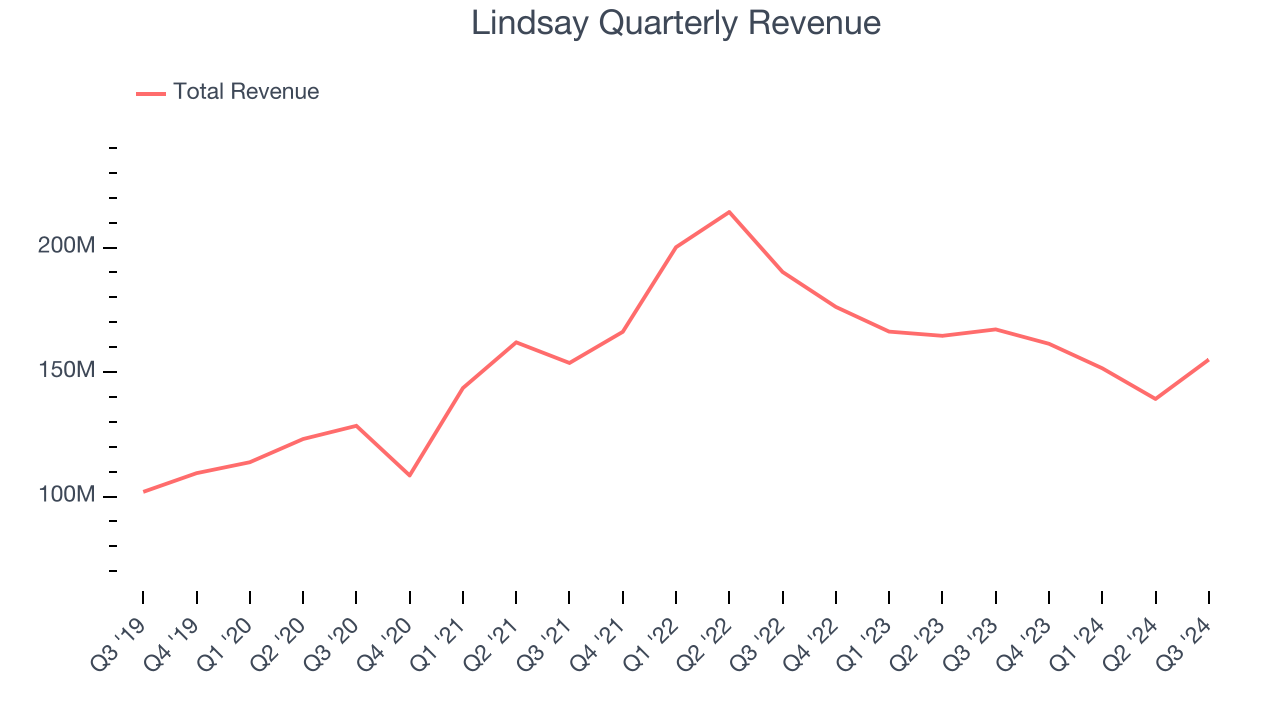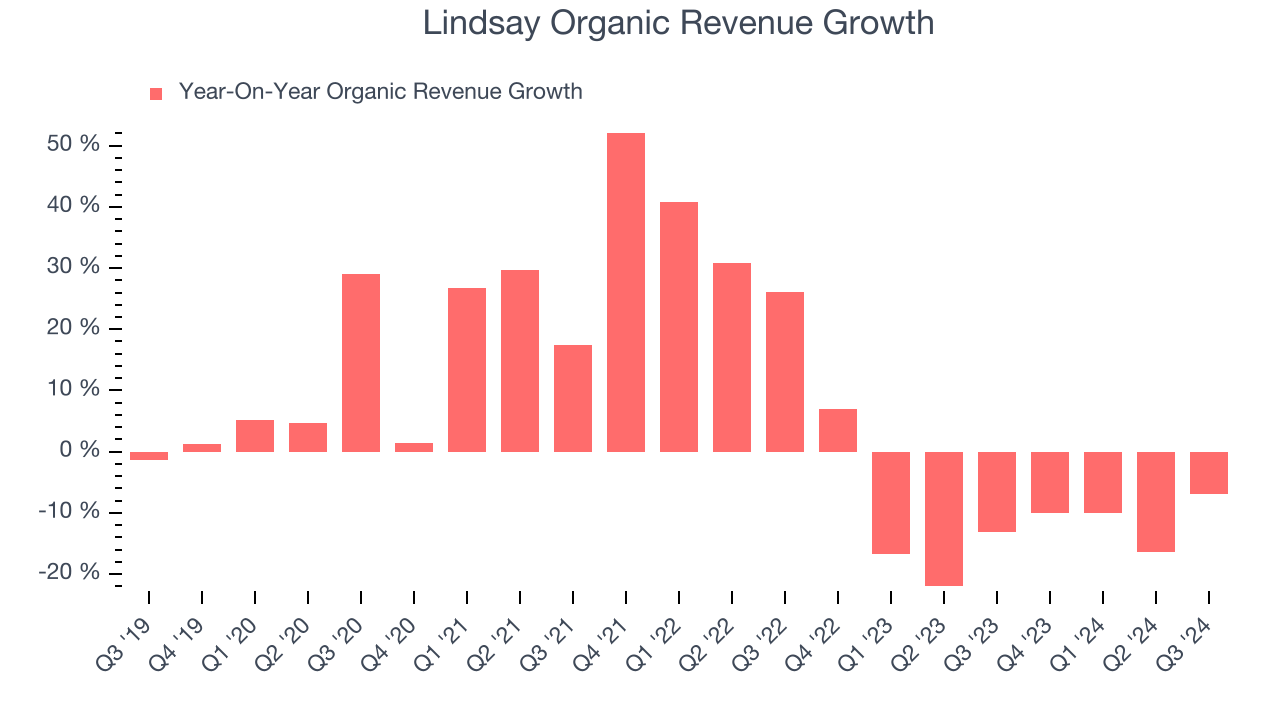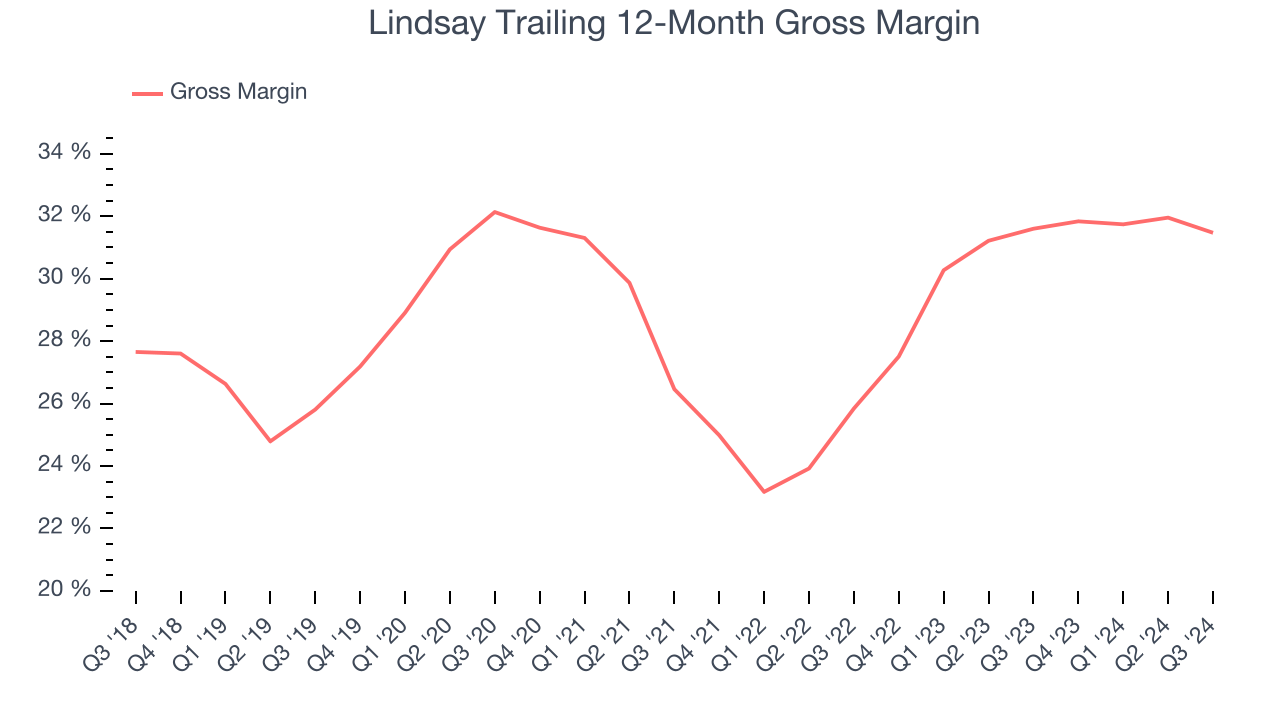
Lindsay has had an impressive run over the past six months as its shares have beaten the S&P 500 by 6.7%. The stock now trades at $134.49, marking a 19.6% gain. This run-up might have investors contemplating their next move.
Is now the time to buy Lindsay, or should you be careful about including it in your portfolio? See what our analysts have to say in our full research report, it’s free.We’re glad investors have benefited from the price increase, but we're swiping left on Lindsay for now. Here are three reasons why we avoid LNN and a stock we'd rather own.
Why Is Lindsay Not Exciting?
A pioneer in the field of center pivot and lateral move irrigation, Lindsay (NYSE: LNN) provides a variety of proprietary water management and road infrastructure products and services.
1. Long-Term Revenue Growth Disappoints
A company’s long-term sales performance can indicate its overall quality. Any business can put up a good quarter or two, but many enduring ones grow for years. Over the last five years, Lindsay grew its sales at a mediocre 6.5% compounded annual growth rate. This was below our standard for the industrials sector. 
2. Core Business Falling Behind as Demand Declines
In addition to reported revenue, organic revenue is a useful data point for analyzing Agricultural Machinery companies. This metric gives visibility into Lindsay’s core business because it excludes one-time events such as mergers, acquisitions, and divestitures along with foreign currency fluctuations - non-fundamental factors that can manipulate the income statement.
Over the last two years, Lindsay’s organic revenue averaged 11% year-on-year declines. This performance was underwhelming and implies it may need to improve its products, pricing, or go-to-market strategy. It also suggests Lindsay might have to lean into acquisitions to grow, which isn’t ideal because M&A can be expensive and risky (integrations often disrupt focus). 
3. Low Gross Margin Hinders Flexibility
Gross profit margin is a critical metric to track because it sheds light on its pricing power, complexity of products, and ability to procure raw materials, equipment, and labor.
Lindsay’s gross margin is slightly below the average industrials company, giving it less room to invest in areas such as research and development. As you can see below, it averaged a 29.3% gross margin over the last five years. That means Lindsay paid its suppliers a lot of money ($70.72 for every $100 in revenue) to run its business. 
Final Judgment
Lindsay isn’t a terrible business, but it doesn’t pass our bar. With its shares beating the market recently, the stock trades at 24.5x forward price-to-earnings (or $134.49 per share). This multiple tells us a lot of good news is priced in - we think there are better stocks to buy right now. We’d suggest looking at Uber, whose profitability just reached an inflection point.
Stocks We Would Buy Instead of Lindsay
The Trump trade may have passed, but rates are still dropping and inflation is still cooling. Opportunities are ripe for those ready to act - and we’re here to help you pick them.
Get started by checking out our Top 9 Market-Beating Stocks. This is a curated list of our High Quality stocks that have generated a market-beating return of 175% over the last five years.
Stocks that made our list in 2019 include now familiar names such as Nvidia (+2,691% between September 2019 and September 2024) as well as under-the-radar businesses like Comfort Systems (+783% five-year return). Find your next big winner with StockStory today for free.






